We’ve created two topical videos covering the 2016 U.S. Summit. The first covers our discussion of the Price of Backlash, and North Carolina’s HB2 law:
The second discusses how LGBT+ inclusion and other forms of Environmental, Social and Governance measures can be important business drivers:
Nearly three hundred senior business gathered at the Edison Ballroom in New York last week for the Out Leadership: 2016 U.S. Summit, hosted by Greenberg Traurig, our sixth annual summit in the United States.
U.S. Secretary of State John Kerry welcomed participants with a special video introduction:
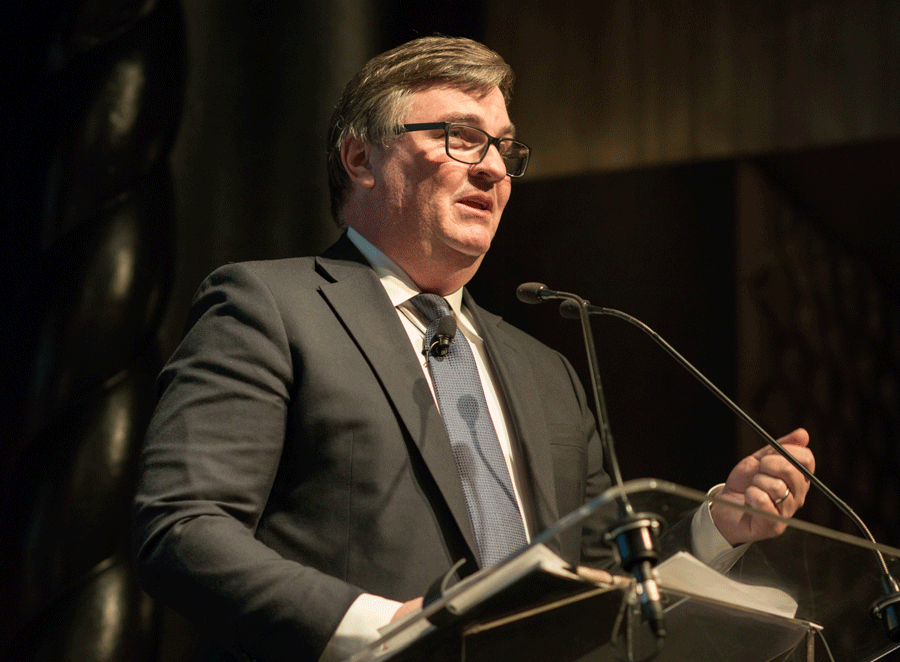
Brian Duffy, CEO of Greenberg Traurig, began the proceedings by noting his firm’s longstanding commitment to LGBT rights: “When you get 2,000 lawyers together they agree on nothing. They argue for the sake of argument. However, as our firm has embraced our LGBT colleagues, it’s one issue where we’ve never had a debate. When you have 2,000 lawyers agree on something that tells you about the organization’s values.”
Speaking to the case for LGBT equality, Duffy continued, “Last night at dinner I was approached by a very good GT client, and he said that when his company was seeking representation, they interviewed all the major firms, and their final decision was based on Greenberg Traurig’s support for LGBT issues. That is the number one talking point for my presentation at the board meeting next week. The business case is over, it’s done.”
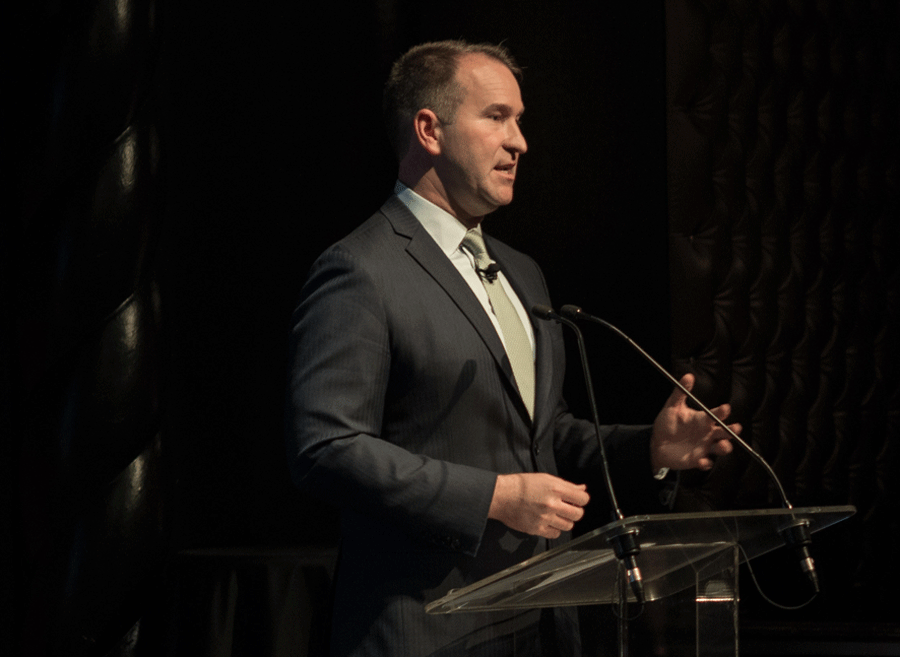
Todd Sears, Founder and Principal of Out Leadership, introduced the event with Out Leadership’s video looking forward to 2016:
“This is our sixth summit in the United States,” Sears noted. “In six years, Out Leadership has gone from my sofa, to launching in Brazil in March and Sydney next week. Leaders like you are the reason we’ve been able to do what we’ve done. From CEOs to heads of business to our OutNEXT talent, everyone is going in the right direction. I never would have thought six years ago that business would drive equality like it has.”
“We were at the Milken Institute Global Conference in L.A. last week, and something cool happened before the ‘Gay Rights: A Corporate American Export’ panel,” Sears continued. “I was setting up and one of the sound technicians asked what the panel was about, and I told him gay rights. And the other sound guy said ‘Awesome!’ And the first technician said to him, ‘You’re pretty excited about that.’ And the other sound guy said, ‘Well, of course I am, I’m gay!’”
“People are coming out at work every day – and it’s happening because we have CEOs of major corporations standing up on stage and talking about LGBT equality,” Sears concluded. “Having a CEO like Brian host this summit sends the message that this matters to CEOs, and that it matters to the talent in their organizations.”
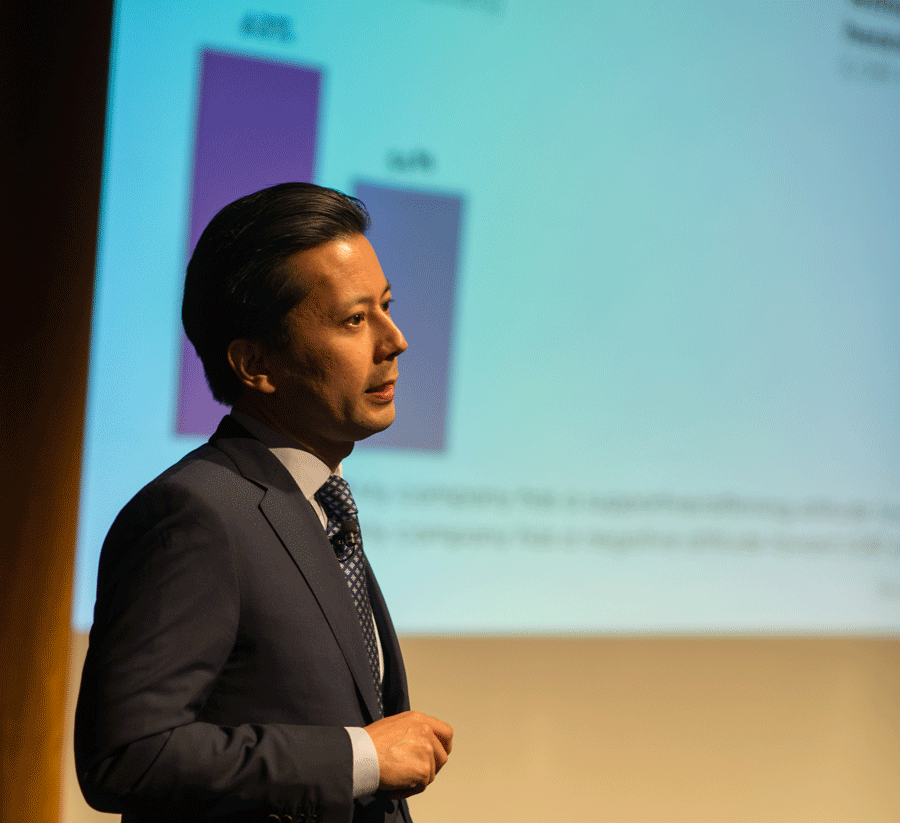
Kenji Yoshino, Chief Justice Earl Warren Professor of Constitutional Law, New York University (and Member of Out Leadership’s Global Advisory Board) presented highlights from “Out in the World,” the Center for Talent Innovation study he co-authored with Sylvia Ann Hewlett. He concluded on a note of optimism: “LGBT individuals are spread throughout society, they are diffuse. They can also be invisible. Before this point, diffusion and invisibility were huge disadvantages. We lacked a usable heritage and were unable to create majority-minority congressional districts. Invisibility was also a huge political detriment because it raised organization costs and made it easier to hide rather than fight.
“However, as we move beyond the tipping point, now that there’s a critical mass of individuals who are LGBT, each of these vices turns into a virtue,” Yoshino argued. “It is no longer the case that most LGBT individuals will be disowned when they come out – rather, they will drag their extended family along with them. Invisibility is a boon, because gatekeeping mechanisms cannot be used against us. When LGBT individuals come out, they come out at the very top echelons of society. The idea that we will see a nonlinear acceleration of LGBT rights globally will happen, but it is contingent on us reaching a global tipping point or critical mass. Everyone in this room is making that more likely.”
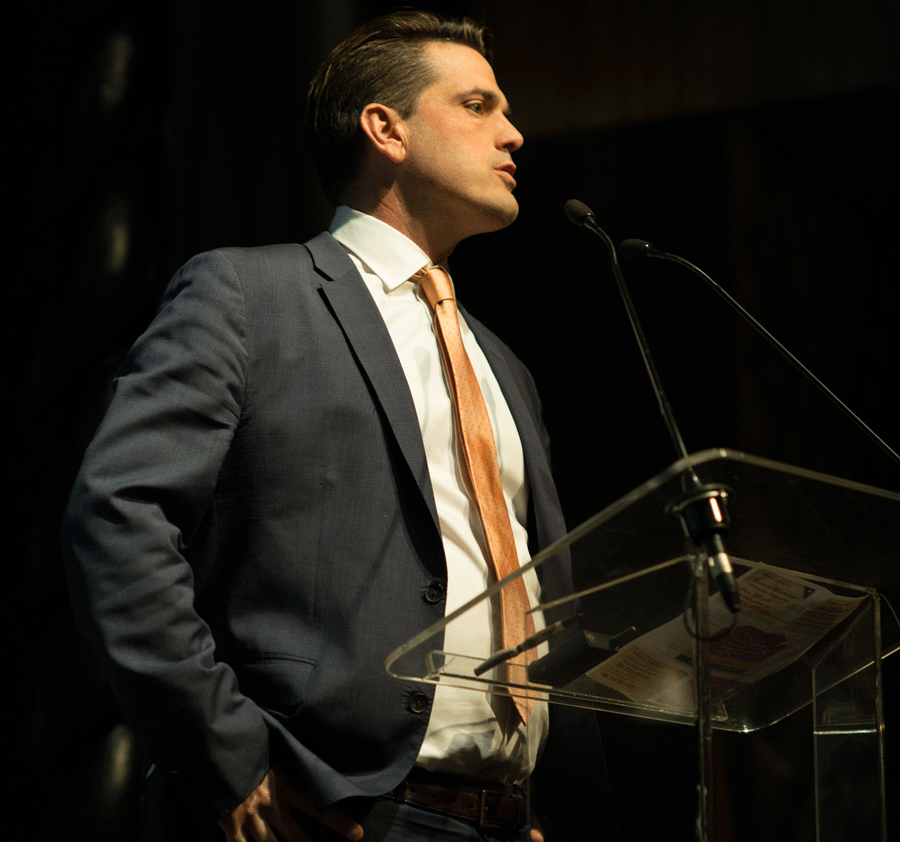
Brad Sears, Executive Director of The Williams Institute, introduced the first panel discussion with new research conducted in partnership with Out Leadership digging into the economic impact of discrimination in North Carolina. “HB2 is costing North Carolina $5 billion. And while I am going to talk a lot about dollars and cents, that is just a proxy for the human suffering it represents. Discrimination costs states very directly. It costs because of the business case for diversity, and it costs because it takes a human toll on LGBT people.”
Chris Geidner, Legal Editor at BuzzFeed, moderated the panel, titled Out in Law – The Price of Backlash: LGBT-Inclusive Business and the Legalization of Discrimination. Out Leadership shared a video featuring Alaina Kupec, a Pfizer employee and trans woman who lives in North Carolina, underlining the challenges LGBT people face under HB2:
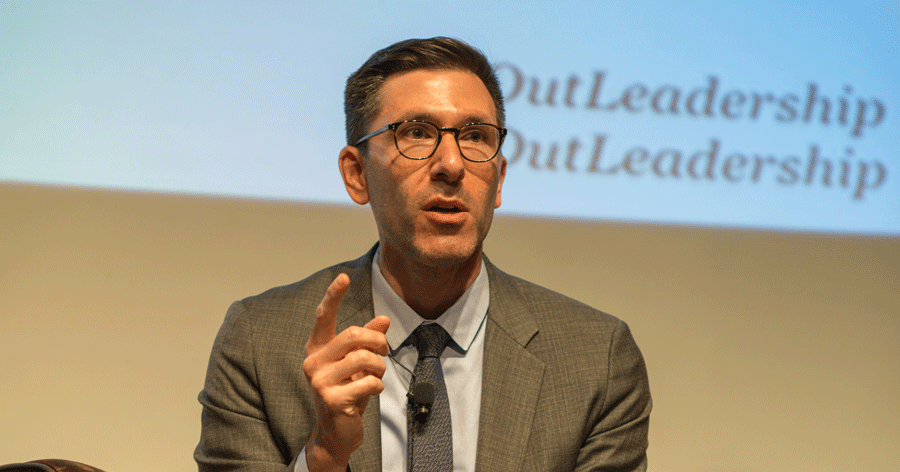
Douglas NeJaime, Professor of Law, UCLA, Faculty Director of the Williams Institute, explained that the anti-LGBT legislation proliferating across the country is “about trying to create spaces in which discrimination can continue. That is what we see in Mississippi: if you object to a same-sex couple on religious grounds then you don’t have to serve LGBT people. This is about saying I don’t want to sanction your conduct; I don’t want to interact with you. And the impact goes beyond stores to healthcare and hospitality.”
“In this new conflict, it’s important that we remember what we learned about how to talk about marriage equality. Marriage equality was a very long campaign, with ups and downs, and we learned about how to talk about the issue. In California, the opponents of marriage equality made it about whether schools would teach children about same-sex marriage. That wasn’t what it was about, but we responded to it, and we didn’t win. However, we learned something about how to frame debates and issues, and we should take what we’ve learned and use that in this case. When we think about the business case we should frame it like that. In North Carolina this has been framed as a bathroom bill. We need to think about what the effective frames are, and not just buy into our adversaries’ frames.”
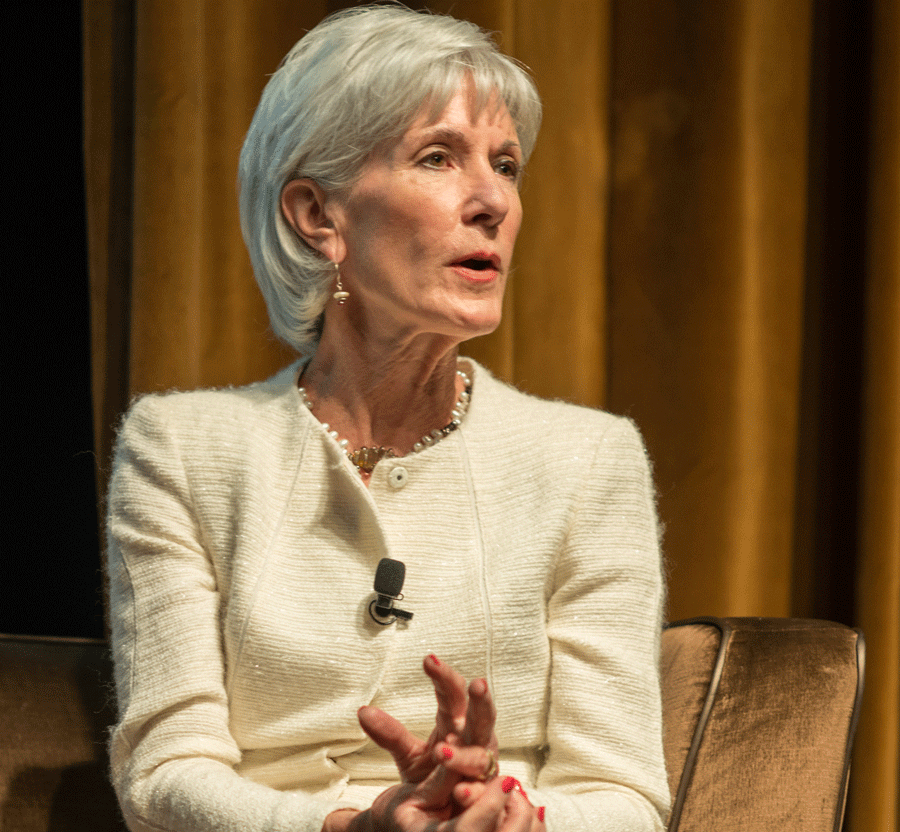
Kathleen Sebelius, the 21st Secretary of Health & Human Services and former Governor of Kansas, emphasized the power of the business community in the debate. “In a red state like Kansas, there is no voice like the business case. And it’s not just Kansas, because every governor and every state legislator wants to create jobs. So the voice of a business leader saying ‘I will not expand here, I will not come here, I do not see this as good for my business,’ is probably the single most powerful statement someone can make. It affects what is happening elsewhere in the country.”
Sebelius noted that businesses have power beyond public statements on issues, which they don’t always wield. “If your company has a PAC, and you don’t ask questions about LGBT equality when you’re speaking with state legislators or members of Congress, you’re sending a mixed message. You’re saying these are the issues that are important, but you’re not asking about it on a questionnaire or discussing it with candidates. And that’s one of the best ways to get their attention during campaign season.”

Greg Baker, General Counsel, The Limited, echoed the importance of the private sector while emphasizing the agency each individual within an organization: “The business voice has tremendous power, but we all have personal power too. I was thinking about soft power this morning. How can we exert soft power and influence in our daily lives? I do this by refusing to hire outside counsel from law firms that are not inclusive. When it comes to celebrity endorsements, we make sure they share our values of inclusion. We vet and make sure the companies we work with embody our values. So all of you in your positions have the power to influence. It is important that you live by your values. If you don’t live by them, they’re meaningless.”
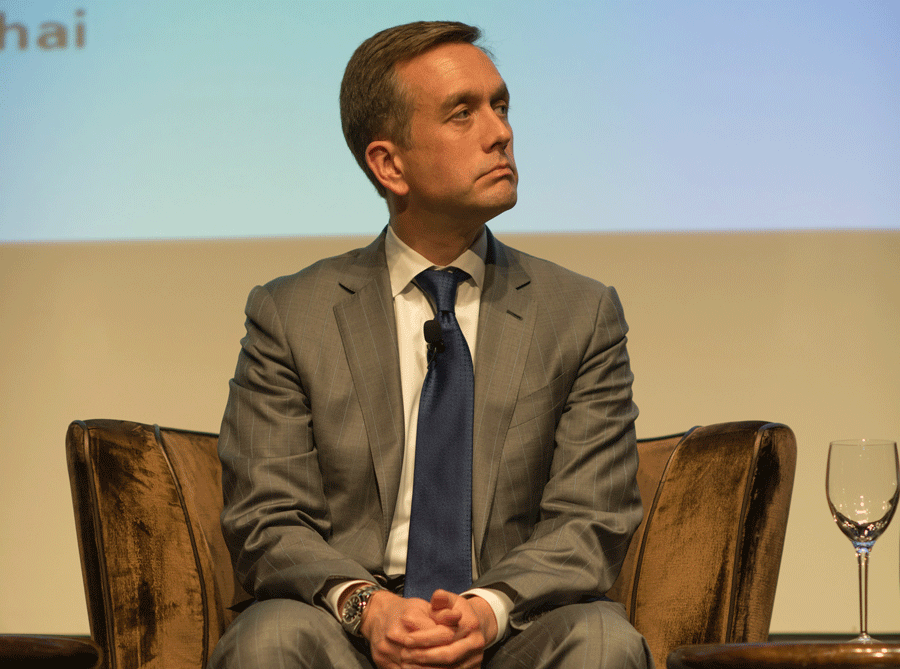
“Corporate America’s journey on these issues has gone through a number of stages. It’s about creating good policies, and then creating an inclusive culture. We cannot estimate the power of company cultures to advance inclusion across the country. You must communicate your company culture, and find and celebrate leaders who can act as ambassadors. It is that kind of activity that has driven progress here and around the world,” explained MasterCard General Counsel Tim Murphy. “We have a great leader who is a strong voice on LGBT equality issues in Missouri. He spoke out strongly, and MasterCard was a very powerful voice in that state. We were successful because we have people and investments there. The reality is that companies have investments in different places, it is therefore essential that we continue to advance the dialogue between companies like Out Leadership and major corporations. We need to work in coalition.”
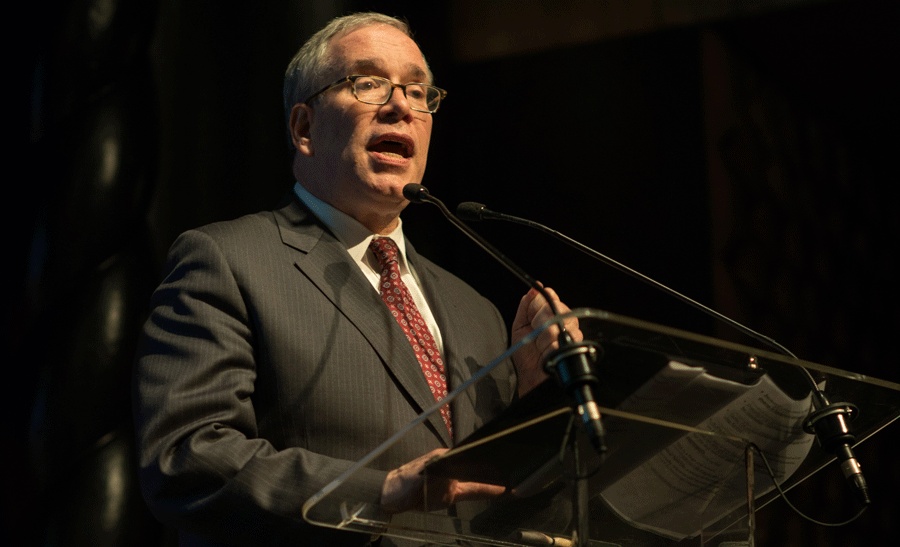
Scott Stringer, New York City Comptroller, introduced the second panel, Out On the Street – The New Value Play: Why Corporate Strategists and Impact Investors Are Aligned on LGBT Inclusion and Sustainability. “I’m proud to be here with Out Leadership. This organization has been instrumental in educating the investment community about LGBT inclusion and leadership. This organization has set the agenda for investors, businesses, and employers. The next frontier is economic justice, and it starts in the boardrooms of America. I oversee the 4th largest pension fund in the United States, and our staff cannot micromanage every decision made. We rely on boards of directors. And in order to protect the retirement security of New Yorkers, we need to have a voice on who sits on these boards. That is why I launched the boardroom accountability project. It is in our interest to have boards that are diversity in backgrounds and expertise. And it is in our interest to be in LGBT-inclusive in our definition of diversity.”
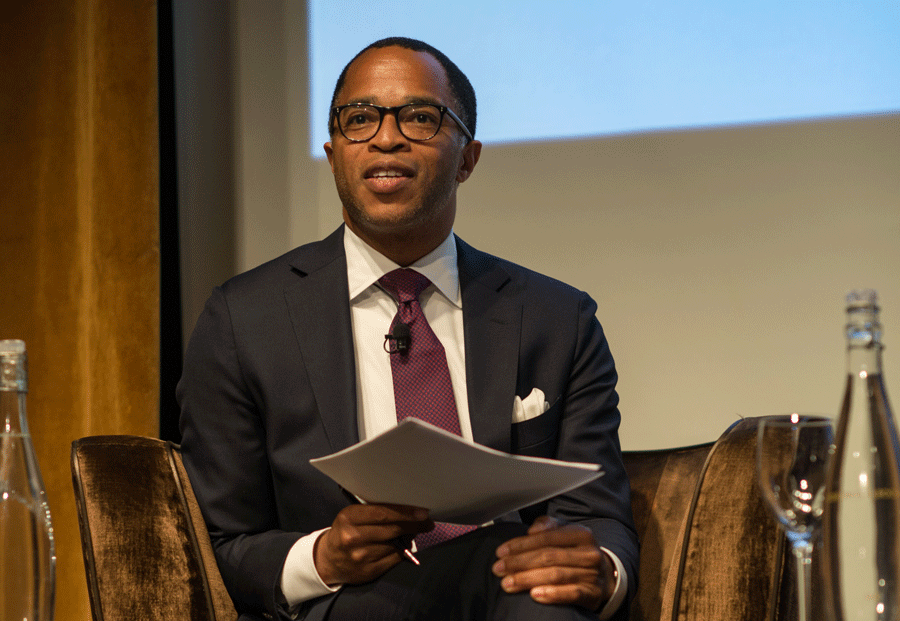
Jonathan Capehart of The Washington Post, who moderated the panel, introduced a short video from the B Lab’s Sophie Faris, who discussed why companies – including Out Leadership and its member companies – are increasingly dedicating themselves to values for business reasons:
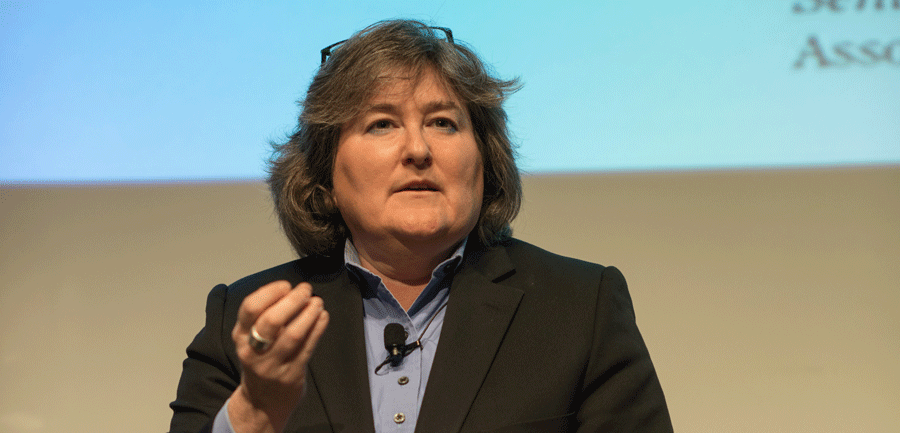
Erika Karp, CEO of Cornerstone Capital Inc. argued that, “Ultimately what you realize is that if you are asking questions about long-term structural issues you are getting more and more systematic. Once you realize that this is simply about asking the question and looking for great governance, then you have to be looking at environmental issues, and at social issues like diversity. Diversity of thought is what leads to innovation and insight.”
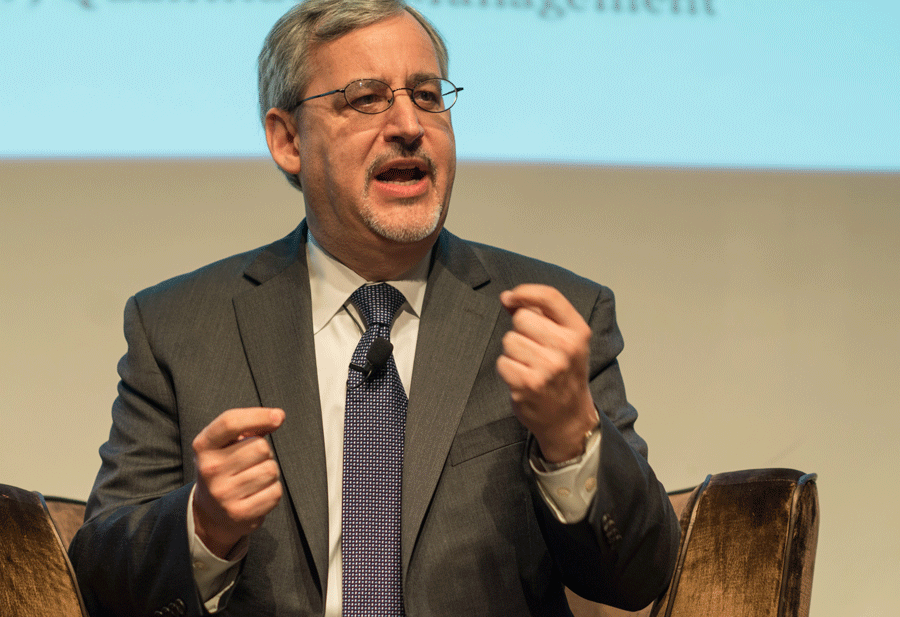
Matthew Petsky, CEO of Trillium Asset Management tried to explain why there are so few openly LGBT corporate board directors. “The majority of board members are white men. And the majority are over 60 years of age. We have not focused on treating LGBT as a diversity indicator. We know we are nowhere with women, with ethnic minorities. But I don’t have an explanation for why we don’t know about LGBT. Generationally a lot of people who are over 60 have not come out professionally. And when you look at the environment from which they came through system it is understandable. The move of the City of New York is absolutely brilliant in that it might push for the other way in which they realize, “I should be coming out,” because investors are looking at this as another measure of diversity.”

Margaret Stumpp, Senior Advisory, Quantitative Management Associates, mentioned: “It’s interesting that we’re having this conversation. Ten years from now this conversation wouldn’t be taking place, it would be obvious. I look forward to that day.”
Earlier in the panel Stumpp noted that governance issues are so fundamental to value creation that they’re essentially impossible to hide from quant traders. “My shop is in the business of combing through data, looking at Tweets, just scraping the Internet. So if you work for a company where people are complaining about your product or people are suing you or taking issue with your environment policies we pay attention. Most important is quality of management, if you are not actually doing this, if you just have the policies but not the culture, it shows up and [investment shops like mine] find it.”
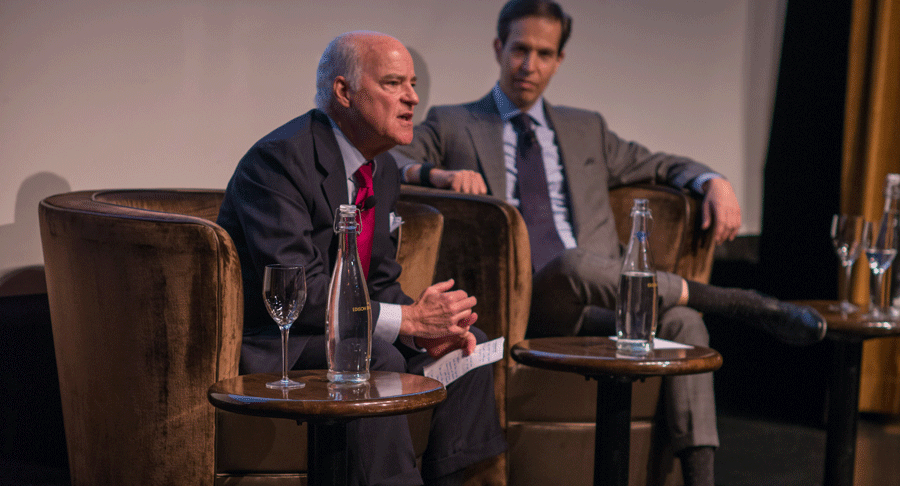
The next segment was a fireside conversation between Ken Mehlman, Partner at KKR and Henry Kravis, Co-Chairman and Co-CEO of KKR. Mehlman began by telling the audience about his experience coming out at KKR. “I want to give a personal example of Henry Kravis the man, because that personal aspect doesn’t always come through like it should. In 2010 I very publicly came out, and before I made that announcement I came to see Henry. I said this is going to get a lot of attention, and he said I don’t think it will. And then, of course, it did. So he called me into his office and asked me to tell him about the event I was doing, a fundraiser for the Perry case. He said. ‘I will make any level of donation, so long as I can get my name on the invitation.’ His level of support is so deep, and it’s something I will never forget.”
Explaining the business imperative for inclusion, Kravis stated, “diversity is anathema to groupthink. I want people coming to KKR with an entirely different background from what I have or what others have. If you don’t have that, you’ll certainly be very narrow. When it comes to investment, you have to look at the macro and diversity is right at the top. We tell companies, whenever they hire people, they better have diverse candidates, or don’t even bring them to us. Diversity is important for everything we do. After the Supreme Court decision in 2012 invalidating the Defense of Marriage Act we held a webinar and spoke to all our companies in the U.S., about 600,000 employees. We spoke to them about inclusion and what we have to do to run a diverse company, and it was an eye opener. And I can tell you they operate differently today than they did before.”
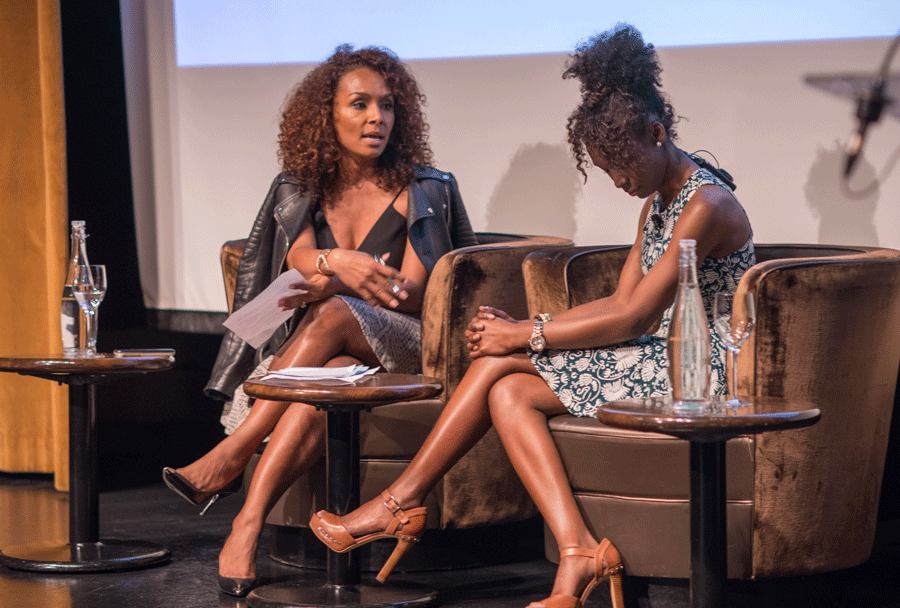
The final panel of the evening, Boardrooms & Bathrooms: Trans Issues in the Workplace, featured author and advocate Janet Mock in conversation with Angelica Ross, Founder of TransTech Social Enterprises. Early in the panel Ross spoke about how she came to the tech industry. “I learned very early on as a trans person that our value is in entertainment, and for some reason it was very clearly communicated to us that our only value is in entertainment. I recognized a mis-valuation and it was a call to discover value for myself and communicate that to other people. So I created a space by teaching myself about technology and giving myself access and providing access to others in the industry. I saw a big hole there, in what was possible for trans folks, and I decided to fill that gap.”
Later she explored what meaningful trans workplace inclusion looks like. “As someone said on the stage earlier today, there has to be training that starts from the top down. A lot of what I see at the executive levels is that people understand things on a certain level. You have people that are going to be the front line, they know the lingo. But as you go higher and higher there seem to be those who do not know the lingo, who do not know social justice. So there needs to be an accountability with leaders so that you can say, ‘if we are going to be a company that joins the ranks of equality there needs to be someone at the top who can break it down. What does our policy mean for a trans person, for someone of color?’ You have to have leaders who can account for all aspects.”
Mock later spoke of her experience coming out as a trans woman in business. “A lot of the stories I hear about unemployment and trans people are around the fact that trans people are more unemployed than others. The success stories of trans people in Corporate America are often those who transitioned on the job. That wasn’t my experience, I transitioned as a teen and then built myself up.”
“The coming out story is important. I wasn’t seeing it necessarily as being a role model. But I was raised by trans girls on the street, and that was my example. And when I came up in college and grad school and Corporate America I thought I was the only one, I thought I was the only trans woman of color to have a job in Corporate America.”
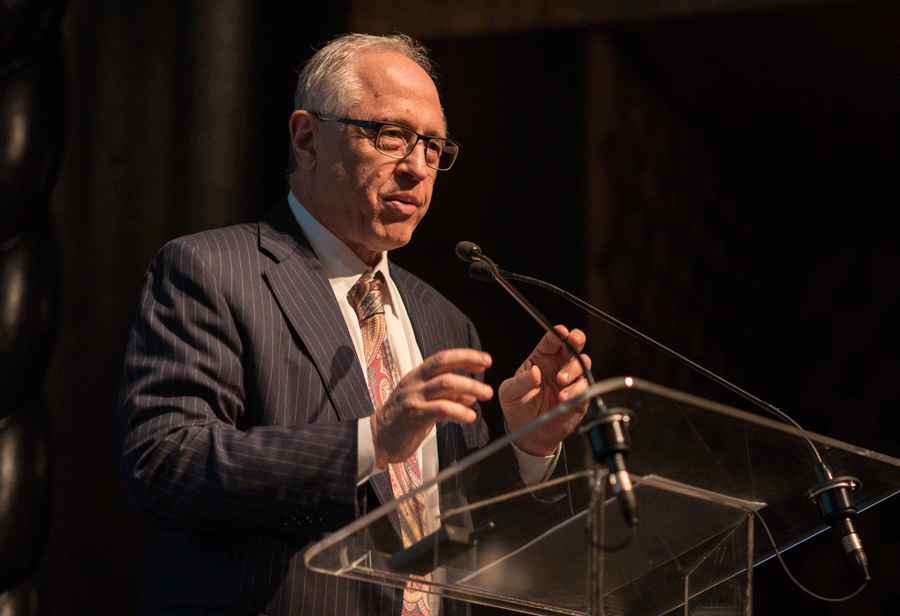
Richard Rosenbaum, Executive Chairman, Greenberg Traurig, brought the summit to a close. “We’re here today because we don’t just believe in making money, we believe in return that goes beyond making money. We believe in return on equality. Much bigger than money. And I want to thank every single person who’s here. The companies that have supported this. The slow steady work you’re doing.
“Nothing you do is too small, no challenges we face are too big. Success looks like you, and what is going on in your hearts, and in your minds. And it looks like the trans person who feels safe because of you. And it looks like the future where global equality is just the way things are, rather than something we have to hold this summit to talk about. So I want to leave you with that thought, and hope.”